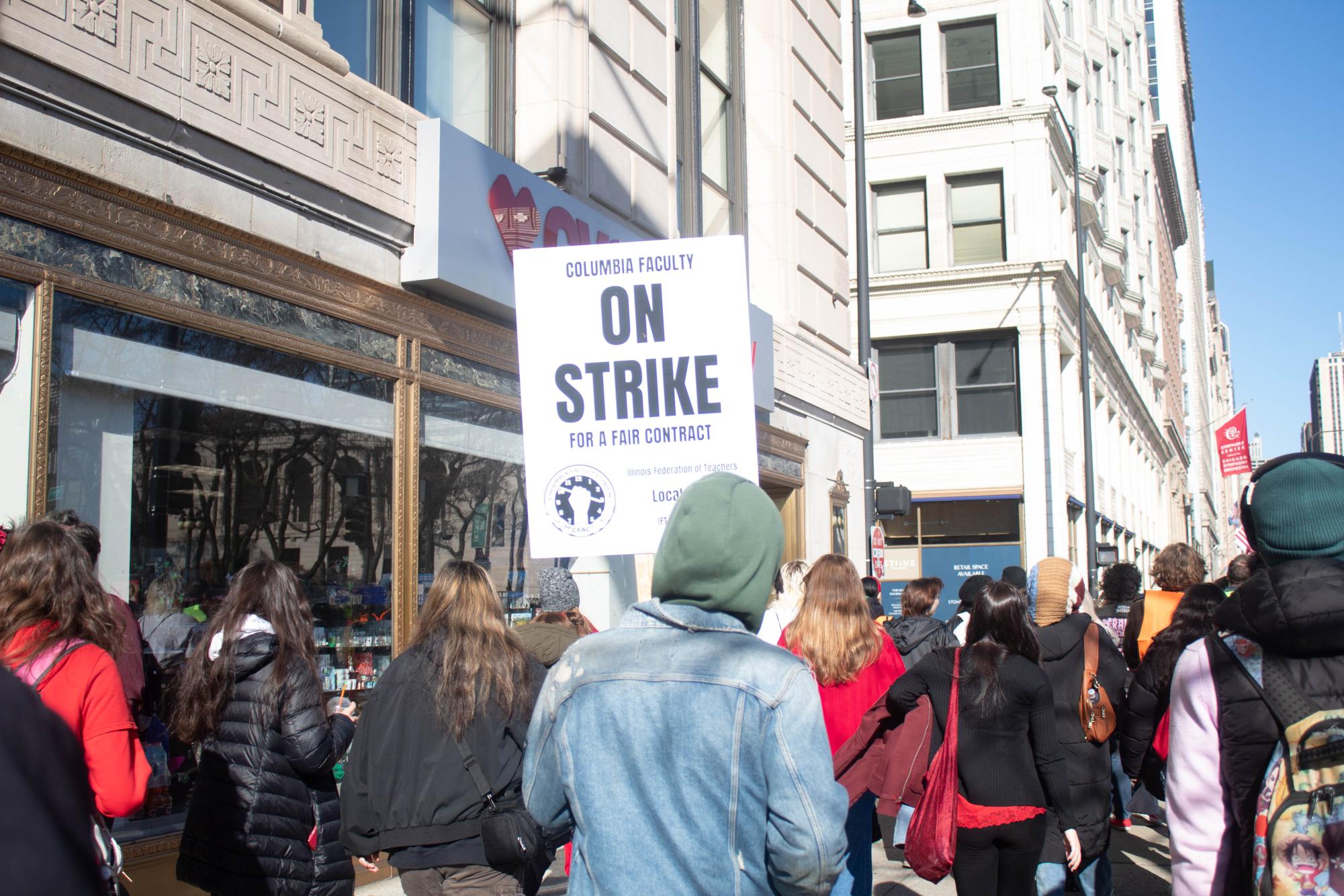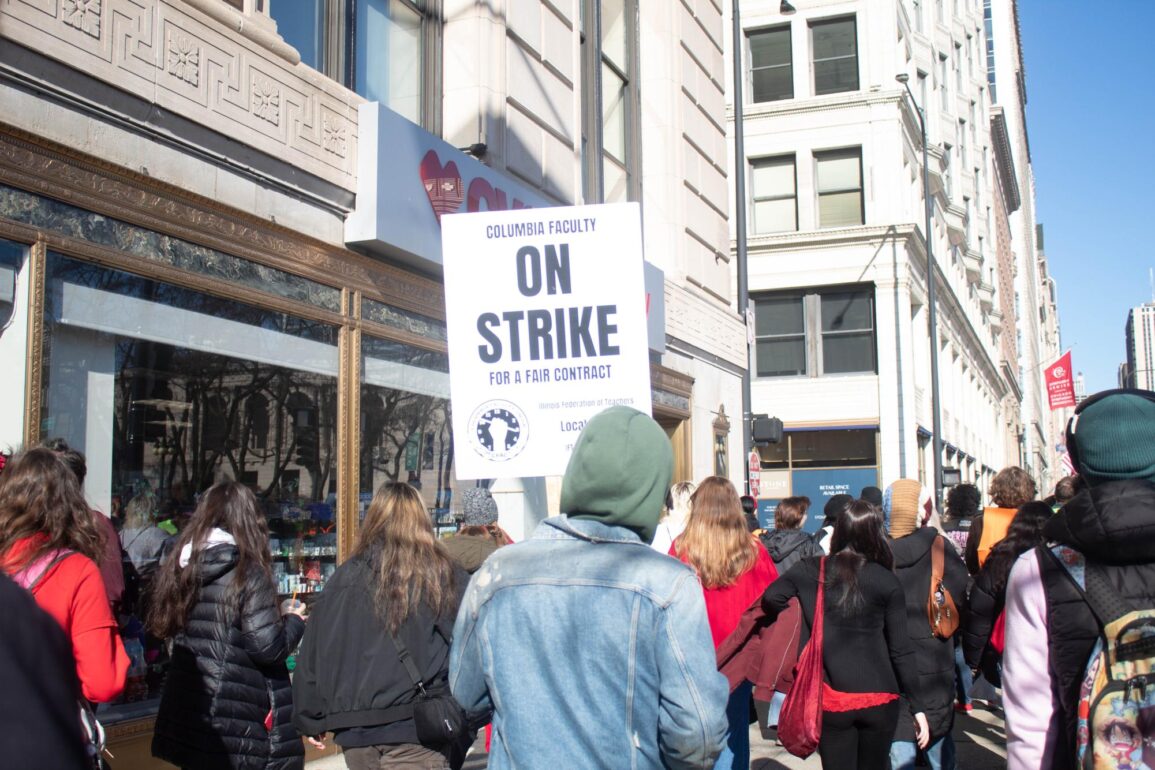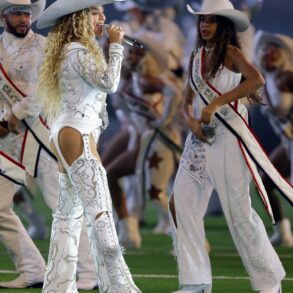
As the part-time faculty strike finishes a fifth week with no sign of a settlement, both the union and college have now agreed to bring in a federal mediator.
The college said it was waiting on the union to agree to this step, which happens when the parties don’t believe they’ll reach an agreement in direct negotiations.
In an email sent on Friday, Dec. 1, the college said it was notified by the federal mediation office that the union agreed to mediation just the day before.
“We look forward to starting this long-delayed process,” according to the email signed by Chief of Staff Laurent Pernot and Special Counsel Labor Relations Terence Smith.
The Chronicle obtained emails between the college and federal mediator that support that.
However, Columbia Faculty Union President Diana Vallera disputed this – even though she was copied on several of the emails with the federal mediator that the Chronicle reviewed.
In one, dated Oct. 31, the federal mediator advised the college and union that they both needed to indicate if they wanted mediation. “Mediation is a voluntary process requiring the affirmative request from both parties,” the mediator said. “The employer has indicated a willingness to consider mediation. To date, I have not received a response from the union.”
On Nov. 16, the college requested federal mediation, according to the emails.
Vallera shared an exchange with the Chronicle between the union’s lawyer, Robert Bloch, and Smith, the college’s counsel: “We have not heard back from you since my text last Thursday agreeing to an FMCS mediator. Have you submitted the request?” wrote Bloch. Vallera, who provided the exchange, said it was dated Nov. 21.
But she provided no evidence to the Chronicle that the union had communicated its agreement directly with the Federal Mediation and Conciliation Service, which was required.
According to an email obtained by the Chronicle, the college has been in communication with the federal mediation agency since May 2023 when bargaining began.
The FMCS is an independent agency that provides mediation and conflict resolution services.
The union originally wanted Chicago Mayor Brandon Johnson to mediate after he issued a statement in support of a resolution. The union has continued to promote a claim that the mayor offered to mediate, noting that the college has refused the offer from the mayor, a former paid organizer for the Chicago Teachers Union who won his race for mayor with the backing of the city’s labor unions.
In a rally with the part-time union on Wednesday, Nov. 29, Randi Weingarten, president of the American Federation of Teachers, told strikers that she was meeting with Johnson later that day.
“He, as you know, volunteered to do mediation and your lovely, sentient management didn’t take them up on it,” she said, motioning toward the 600 S. Michigan building where many administrative offices are located.
A Chronicle reporter called the mayor’s press office later that day, and was told the Mayor’s Office offered to “observe” negotiations but not to mediate.
According to the email chain with Smith, the college’s lawyer, and the federal mediation service, the agency had not been contacted by union representatives regarding “their interest in pursuing mediation” as of Monday, Nov. 27, which was the start of the fifth week of the strike. The names of the coordinator from the mediation service were redacted.
The part-time faculty union began the strike on Monday, Oct. 30 in a dispute over increased class sizes and fewer course sections. The strike is now one of the longest adjunct strikes in the history of higher education.
Jordan Jefferson, a senior fashion photography major, said he is hoping a mediator will “make things better.”
He described what it was like for him at this point as a student, with both hope and fear for the future.
“It feels like grandma stopping in to stop mom and dad from fighting,” Jefferson said, about bringing in a mediator. “We literally feel like kids going through a divorce right now and so what I’m hoping is that the mediator can really step in and make things better.
Sandra Conrad, a junior illustration major, said regardless of mediation, they are worried about the remainder of the semester being disrupted further.
For now, Conrad said they prefer just to finish at this point with the substitute teacher.
“I would rather finish the semester the way it is right now,” they said.
In the meantime, with just two weeks left in the semester, the federal agency is in the process of assigning a mediator.
Additional reporting by Connor Dore and Patience Hurston.
Related
This post was originally published on this site be sure to check out more of their content.









